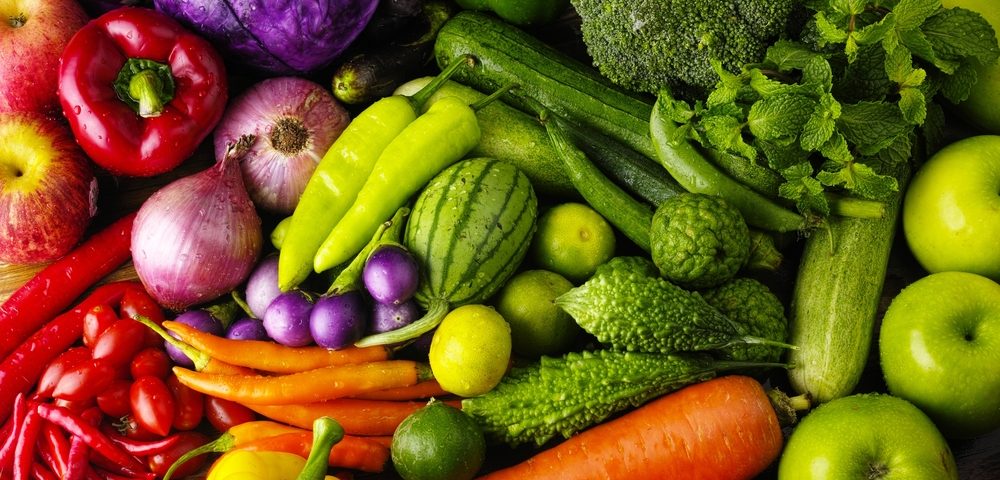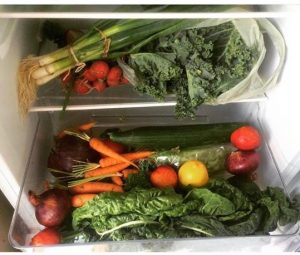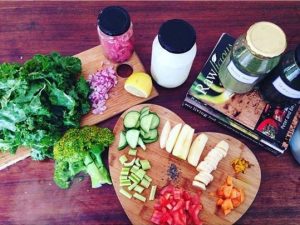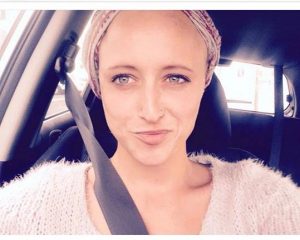One of the biggest changes that came out of cancer for me was learning how to look after my health, mainly by becoming more conscious of what I consume.
I grew up like most regular kids — eating lots of sugary treats. Sweets, chips, cereals, cookies, cakes, chocolates, the works. I never saw much of an issue with this. Everyone in my family was a healthy size, and at the time there just wasn’t that much information about processed foods, saturated fats, and refined sugar. In fact, it wasn’t until my father’s cancer diagnosis, in 2013, that our eating habits began to change. His illness was the catalyst that made us explore the relationship between diet and disease.
However, it wasn’t until I was diagnosed with cancer in 2016 and going through chemo myself that I began to take any of it seriously. The trigger for change in me was the food they served us in the oncology ward; mainly grilled cheese sandwiches and fruit juice. I realized my oncologist hadn’t discussed any dietary changes that I should implement during recovery. I couldn’t help but wonder whether people were simply unaware of the connection between food and disease, or if they were choosing to ignore it. I wanted answers, and so I met up with several people to talk about their experiences. Many were cancer survivors who had changed their diet and seen a hugely positive impact on both their physical and mental health.
Truth is, I’d never been particularly unhealthy; I’d just never paid much attention to what I was putting in my body. However, once I started understanding both food and my body better, the connection between everything became much clearer.
I hated going through chemo and being physically inundated with chemicals. To combat this feeling, I began researching cancer-fighting foods and learning how they benefited the body. The first thing I learned was that the body is essentially an ecosystem (microbiome) teeming with billions of microbes (bacteria). We have trillions of these microorganisms living in our gut and throughout our whole bodies. These good bacteria help keep us alive by regulating our immune system, extracting energy from food, producing essential vitamins, regulating our glucose levels, and preventing bad bacteria domination. Our bodies are working all the time to keep us healthy.
I realized that by eating foods with good bacteria (probiotics), I was helping my body to fight off disease. Food scientist Michael Pollan puts it like this: “You are what you eat, eats.” All the processed and refined sugars end up feeding the bad bacteria in your gut instead of the good bacteria. This is why a diet high in sugary foods can lead to cancer. The interesting thing is that good bacteria don’t just keep our bodies free from illness, but our microbiome affects our brain and mental health, too, as our gut and brain are inherently connected.
All of this information got me really excited about food while undergoing treatment. I started eating different types of probiotic foods, like yogurt, sauerkraut, kefir, kimchi, and kombucha. Some of these sound fancy, but you can make most of them at home. Sauerkraut is essentially just cabbage and salt kept in a dark cupboard until fermented. I began stocking my fridge with fresh produce I’d bought at a local farmers market (for cheaper than at my usual supermarket!). I think, in a lot of ways, investing in my health and diet helped me gain some control back from the cancer and chemo that was ravaging my body. At this time I was also practicing yoga and meditation every day. I felt healthy, strong, alive, and clear-minded, despite what I was going through.
I’ve learned, however, that healthy eating is not only about what you eat, but your enjoyment around food. There’s no point in having a green juice when what you’re actually craving is a cheeseburger. In fact, I don’t think there’s any benefit to consuming something you hate the taste of, unless it’s apple cider vinegar, because that stuff is supposedly God’s pee. But in all seriousness, I fully admit to loving all the cheesy, doughy, fried things. I’m not saying one should only eat salad, because how incredibly dull would life be if that’s all we ate?
I think it’s rather about understanding the connection between the food we eat and our overall well-being. I’ve found that simply becoming cognizant of what I eat has made me a happier human all around. I think it’s important, as survivors of this disease, to educate ourselves and try to take care of these precious vessels of ours. When you love and appreciate life, it’s easy to start eating healthier, simply because you want to stick around for it!
***
Note: Lymphoma News Today is strictly a news and information website about the disease. It does not provide medical advice, diagnosis, or treatment. This content is not intended to be a substitute for professional medical advice, diagnosis, or treatment. Always seek the advice of your physician or other qualified health provider with any questions you may have regarding a medical condition. Never disregard professional medical advice or delay in seeking it because of something you have read on this website. The opinions expressed in this column are not those of Lymphoma News Today or its parent company, BioNews Services, and are intended to spark discussion about issues pertaining to lymphoma.






